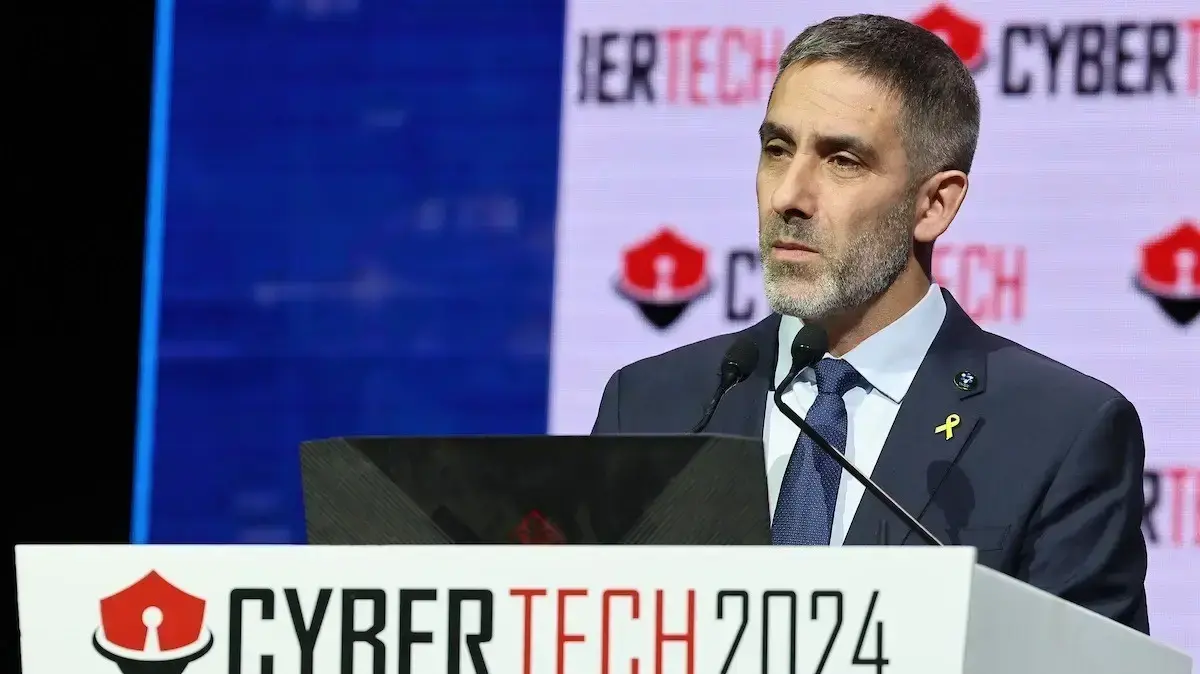War from another angle:
The Russian invasion of Ukraine and the fighting between the Ukrainians and the Russians are taking place not only on the physical battlefield, where tanks, anti-tank and combatant tanks are moving, but also in cyberspace, the computerized space.
It is a fight for all intents and purposes when both sides use their abilities very powerfully to hit the other side.
So we decided to also review this intriguing battlefield and explain what warlike and defensive moves both sides have taken so far at the end of about two weeks of fighting.
The person who helped us describe the sophisticated cyber war between the parties is Dennis Posolutin, VP of Technology and Innovation at Inokom, an artist group that specializes in offensive and defensive cyber warfare.
The opening phase - the noise - a widespread Russian attack on Ukrainian sites
According to Dennis, "The first offensive combat phase is always a phase in which the attacking party aims to cause panic. It's just like artillery or missile fire and in cyber it is a DDOS denial of service attack. In total you run hundreds of thousands of computers simultaneously The other side.What it causes is the collapse of the network, the essential services get stuck and it is like the fall of communication networks when the whole world calls home under pressure after a terrorist attack. It is chaos. "
Dennis Posolutin, Photo: Niv Kantor
How do you defend against such an attack?
Since there are hundreds of thousands of inquiries, even from computers controlled by the Russians all over the world, the so-called bots, it is very difficult to neutralize the attack because it is simply a constant stream of inquiries.
Luckily for Ukraine, two huge companies came to its aid.
The first is Google, which has much greater power and power in the Ukrainian government and Google has the capabilities to detect such attacks, filter them out with advanced algorithms and thus stop them.
That is, Google and another giant company joined Ukraine and allowed it a computing power to run its sites, and also activated all sorts of special filtering measures that facilitated the defensive country.
Ukrainian Response Stage - Zalanski's International Army
After the Russian attack, thousands of hackers from the West along with Ukrainian cyber forces mobilized to defend the country and produced a counter-attack by DDOS bots.
"Here the Russians had a very difficult problem, because the Ukrainians called on the whole world to help them, and because they are the attacked side, a lot of Western hackers joined the fighting, so the Russians did not know how to stop this service attack at first, because it came from all over the world. "A popular party or an attacker in the case of Ukraine, thousands of hackers mobilized alongside it who created an unusual and very sharp counter-attack."
The Great Wall - The Russians are defending themselves
The Ukrainian attack caused an escalation in the Russian response.
"The Russians toppled a lot of international companies like Facebook and Twitter. They cut them off from Russia to prevent such an international DDOS attack. They just cut off most of the traffic coming into Russia, and thus took over the network and created an overall network wall like the Chinese did in their time. By the way, the Ukrainians can not act like that, they are weaker because they are a western country that needs media out to tell about the war, this is why Google back mobilized to help them, the Russians on the other hand realized that in the world the positive sentiment they lost and so they only engage in inward propaganda ".
Cyberattacks // Photo: Reuters,
Step B. Spyware and silent software
After the initial attack phase, both countries largely contain the DDOS attacks - denial of service to the other side.
At this point each side moves on to computer takeover attempts in a hostile country for a number of reasons.
"After you're almost disconnected from the other side, you try to take over by phishing attacks on computers in the enemy state. You send messages with a clickable link and you hope people fall and click on that link. It's done both before the war and now even more so. Happens on the other side that disconnects itself from you. You put silent software on the other side that spies after it. Obtain intelligence information and tell where a certain person is. That is, not always the phishing, phishing, conspicuous, not always the goal is to destroy the other side's computer Spying, surveillance, gathering offensive information, "says Dennis, noting that this is the stage where the parties are now in the second weekend of the fighting.
Stage C Doomsday Attacks - Strategies
It is important to note that so far we have not seen in the war the real capabilities of the Russians in the cyber field, the intention is for sophisticated destructive attacks, in which they simply eliminate servers and damage the vital network infrastructure of the other side.
In this area, the Russians have proven capabilities to harm energy infrastructure for example.
An example of this was seen in 2015, when a very sophisticated cyber worm called Blackenergy, shut down energy sites in Ukraine, later in 2017 another type of cyber worm called NotPetya, hit Ukrainian payment and money companies hard.
In both cases the attacks were acute, extreme and the information damaged could not be recovered.
Regarding this, Dennis explains that "a worm is a virus that takes a lot of time to write, in the same way if you use a backdoor in the software to control it you also spend a lot of time finding the vulnerability. And these are sensitive tools because after activating them "This is lowering the workload of years. So at the moment, as the Russians are not destroying cities and have not really harmed the Ukrainians with all their might, we have not seen strategic offensive cyber weapons."
"But make no mistake about the Russians, they have some doomsday tools already in a lot of sites within Ukraine. These are tools that will bring down and delete servers and cause huge damage, these are very aggressive tools of several types and probably in the next stage towards full occupation, we see them really paralyze the country. "So far, because when you expose such a tool, you end it like you finished a spy source, everyone will write software patches against it, so they are still silent," he explains.
Were we wrong?
Fixed!
If you found an error in the article, we'll be happy for you to share it with us





/cloudfront-eu-central-1.images.arcpublishing.com/prisa/WQEEUVRP3BB57M7LND37U7VREE.png)


